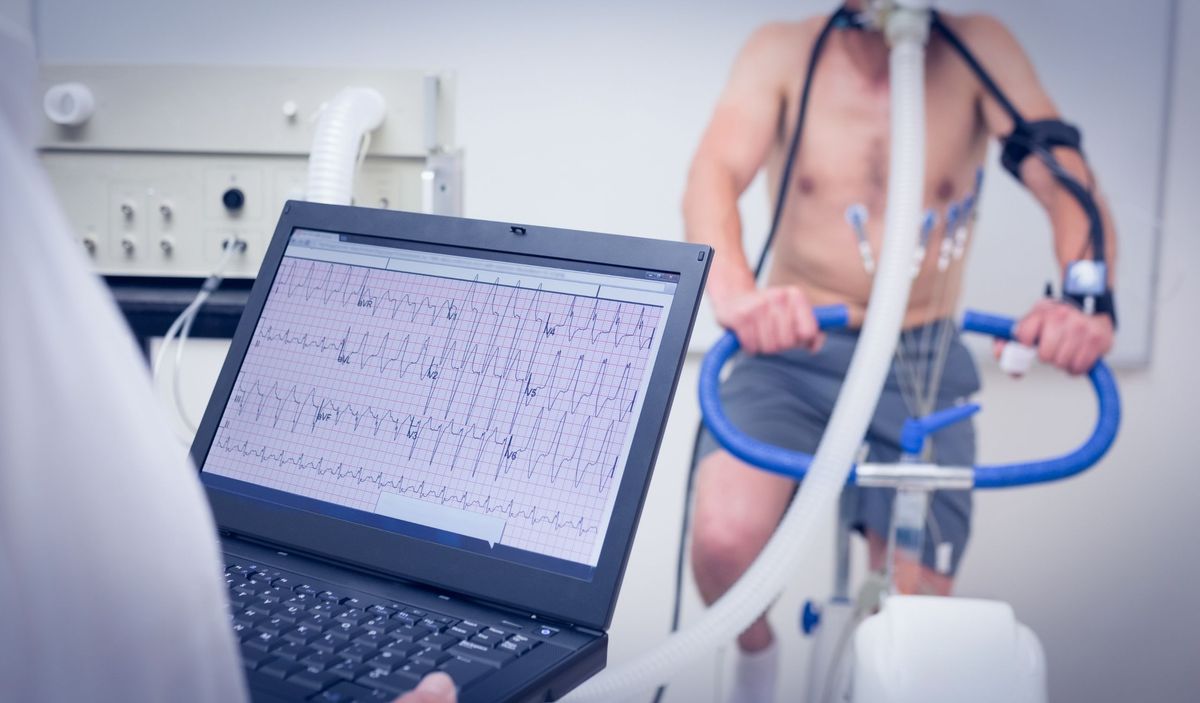Exercise physiology is a fascinating field that delves into the intricate relationship between the human body and physical activity. At its core, exercise physiology seeks to understand how the body responds and adapts to exercise, ultimately aiming to optimize performance, health, and well-being.
By studying the physiological mechanisms that occur during exercise, exercise physiologists play a crucial role in enhancing athletic performance, preventing and managing chronic diseases, and promoting overall fitness.
Types of Exercise Physiology
Exercise physiology encompasses a variety of specializations, each focusing on different aspects of human performance and health.
Some key areas within this field include:
Exercise physiologists working in sports performance aim to maximize the athletic abilities of individuals and teams. They analyze how different exercise regimens, training techniques, and environmental factors impact an athlete's strength, endurance, speed, and agility.
This specialization focuses on using exercise as a therapeutic tool to manage and prevent chronic conditions such as heart disease, diabetes, and obesity. Clinical exercise physiologists design personalized fitness programs that help patients improve their cardiovascular health, manage weight, and enhance overall quality of life.
Many exercise physiologists are involved in research and teaching. They contribute to expanding our understanding of human physiology, designing experiments, and conducting studies that contribute to the advancement of exercise science.
Exercise physiologists in rehabilitation settings work with individuals recovering from injuries or surgeries. They create tailored exercise programs that aid in the recovery process, restore mobility, and rebuild strength.

What Does an Exercise Physiologist Do?
Exercise physiologists wear many hats as they work to optimize human performance and health. Their tasks include:
- Conducting fitness assessments:
Exercise physiologists evaluate individuals' physical condition, which involves assessing factors like cardiovascular fitness, body composition, flexibility, and muscle strength. - Designing exercise programs:
Based on assessment results and individual goals, exercise physiologists develop customized workout routines that target specific fitness objectives, whether it's improving endurance, building muscle, or managing a health condition. - Monitoring progress:
These professionals track clients' progress over time, making adjustments to their exercise programs as needed to ensure continuous improvement and prevent plateaus. - Educating and counseling:
Exercise physiologists provide guidance on exercise techniques, nutrition, and lifestyle habits to help clients make informed choices that support their fitness goals. - Working with medical teams:
In clinical settings, exercise physiologists collaborate with doctors and healthcare professionals to create comprehensive treatment plans for patients managing chronic diseases.
How is Exercise Physiology Different from Exercise Science?
Exercise physiology and exercise science are two closely related fields, often used interchangeably, but they do have distinct focuses and areas of expertise. Let's delve into the key differences between these two disciplines.
Exercise Physiology
Definition and Focus:
Exercise physiology is a specialized branch of exercise science that specifically concentrates on understanding the body's physiological responses to physical activity and exercise. It delves into how the body's systems, such as cardiovascular, respiratory, and musculoskeletal, adapt and change in response to different types, intensities, and durations of exercise.
Core Emphasis:
Exercise physiologists study how exercise impacts heart rate, blood pressure, oxygen consumption, muscle contractions, energy metabolism, and more. They seek to uncover the underlying mechanisms that drive these changes and how they contribute to improvements in performance, health, and overall well-being.
Applications:
Exercise physiology is applied in various contexts, including enhancing athletic performance, designing fitness programs for individuals with chronic diseases, aiding in post-injury recovery, and contributing to scientific research related to exercise and health.
Exercise Science
Definition and Scope:
Exercise science is a broader field that encompasses multiple aspects of physical activity, health, and human movement. It includes various sub-disciplines, such as exercise physiology, biomechanics, sport psychology, exercise prescription, nutrition, and even sociocultural aspects of physical activity.
Interdisciplinary Nature:
Exercise science draws on knowledge from biology, anatomy, physiology, psychology, biomechanics, nutrition, and other disciplines to provide a comprehensive understanding of human movement and its effects on health and performance.
Applications:
Exercise science has applications in a wide range of fields, including sports performance, physical therapy, public health, fitness industry, research, and education. Professionals in exercise science might focus on understanding movement mechanics, assessing psychological factors influencing exercise behavior, or developing nutrition plans to support physical activity.
Key Distinctions:
- Scope and Specialization: Exercise physiology narrows its focus to the physiological responses and adaptations during exercise, while exercise science has a broader scope encompassing multiple disciplines related to physical activity.
- Emphasis on Physiology: Exercise physiology places a strong emphasis on understanding the intricate physiological changes that occur during exercise, such as changes in heart rate, oxygen consumption, and muscle function.
- Integration of Disciplines: Exercise science integrates various disciplines like biomechanics, psychology, and nutrition, while exercise physiology is primarily concerned with the physiological aspects of exercise.
- Application Areas: Exercise physiology's primary applications often involve designing exercise programs for specific goals, such as improving cardiovascular fitness or managing chronic diseases. Exercise science professionals might have a wider range of career paths, including research, teaching, fitness training, and more.
Who Can Benefit from Exercise Physiology?
Exercise physiology offers a wealth of benefits to diverse groups of people:
- Athletes: Exercise physiologists help athletes enhance their performance by tailoring training programs that improve specific aspects of their physical abilities.
- Individuals with Chronic Conditions: For those dealing with conditions like diabetes, heart disease, or obesity, exercise physiologists develop safe and effective exercise routines that complement medical treatments and contribute to better management of these conditions.
- Post-Surgery Patients: Exercise physiologists aid in post-operative recovery by creating exercise plans that facilitate healing, restore strength, and prevent complications.
- Fitness Enthusiasts: Whether you're a beginner looking to adopt a healthier lifestyle or a fitness enthusiast aiming to reach new goals, exercise physiologists provide expert guidance to optimize your workouts and achieve lasting results.
Is Exercise Physiology the Right Career Path for You?
Embarking on a career in exercise physiology can be incredibly rewarding if you possess certain qualities and interests:
Passion for Health and Fitness
If you're enthusiastic about promoting well-being through physical activity and lifestyle changes, exercise physiology aligns perfectly with your interests.
Strong Analytical Skills
Exercise physiologists need to interpret data from fitness assessments and tailor exercise plans accordingly. Analytical skills are essential to understanding clients' needs and tracking progress.
Communication Skills
As an exercise physiologist, you'll be working closely with clients, medical professionals, and potentially even athletes. Effective communication is key to explaining complex concepts, providing guidance, and building rapport.
Empathy and Patience
Dealing with individuals who have varying fitness levels or health conditions requires a compassionate and patient approach. Understanding each person's unique circumstances is vital for successful outcomes.
Interest in Science
A foundation in biology, anatomy, and physiology forms the basis of exercise physiology. If you have a curious mind and an appetite for scientific knowledge, you'll find this field intellectually stimulating.
In conclusion, exercise physiology plays a pivotal role in optimizing human performance, improving health outcomes, and advancing our understanding of the intricate interactions between physical activity and the body's physiological responses. Whether you're an aspiring exercise physiologist or someone seeking the expertise of one, this field holds the promise of a healthier and more active future.

Frequently Asked Questions (FAQs) About Exercise Physiology
What exactly is exercise physiology?
Exercise physiology is the scientific study of how the body responds to physical activity and exercise. It aims to understand the physiological changes that occur during exercise, helping individuals optimize their performance, improve health, and achieve fitness goals.
How does exercise physiology differ from exercise science?
While both fields are closely related, exercise physiology specifically focuses on the body's physiological responses to exercise. Exercise science, on the other hand, encompasses a broader range of topics including biomechanics, psychology, and sociology related to physical activity.
What roles do exercise physiologists play?
Exercise physiologists play a multifaceted role. They conduct fitness assessments, design personalized exercise programs, monitor progress, provide education on exercise techniques and nutrition, and collaborate with medical teams to manage chronic conditions through exercise.
Who can benefit from exercise physiology services?
Exercise physiology benefits a wide range of individuals, including athletes aiming to enhance performance, people managing chronic diseases like diabetes or heart conditions, those recovering from surgeries, and anyone seeking to improve their fitness levels and overall well-being.



